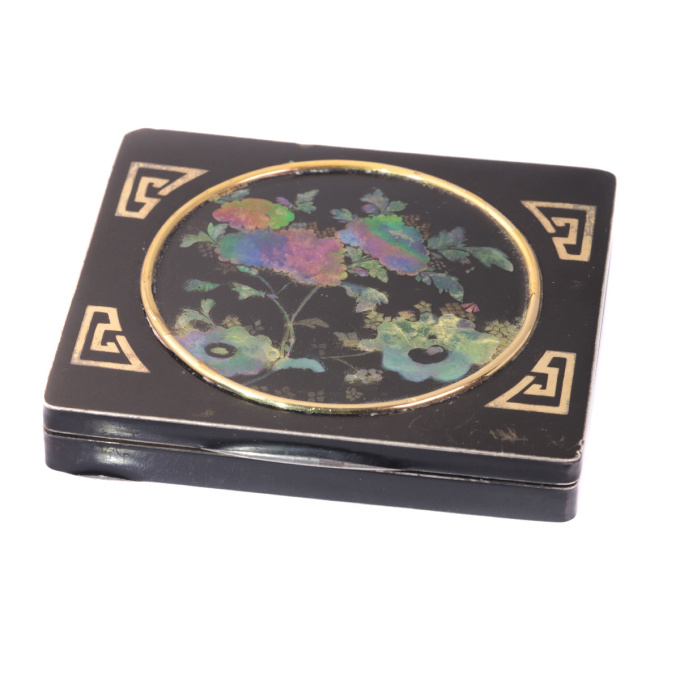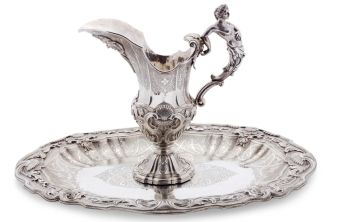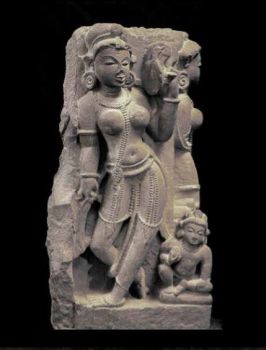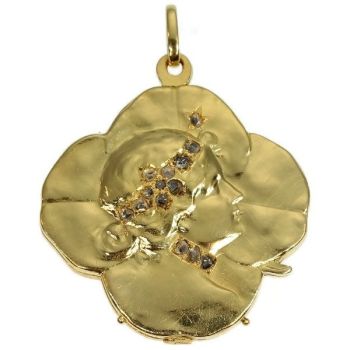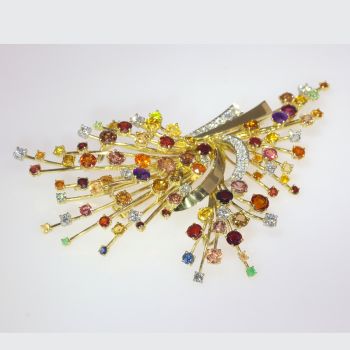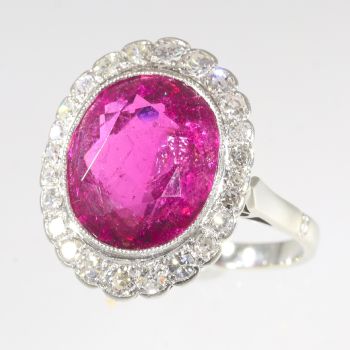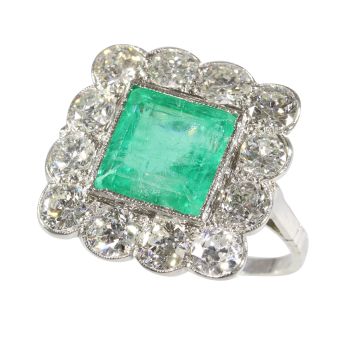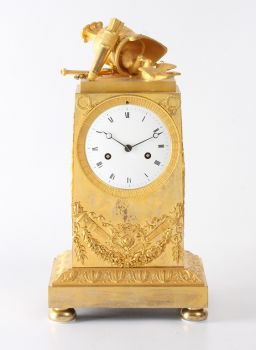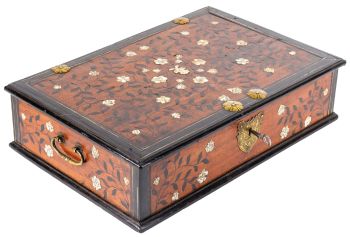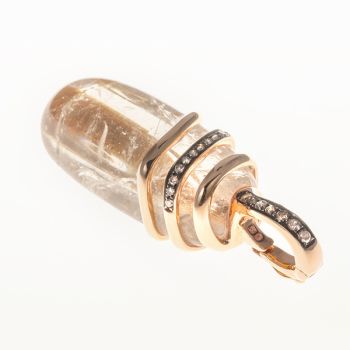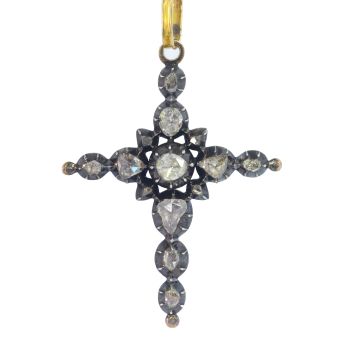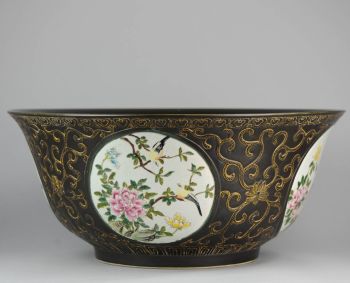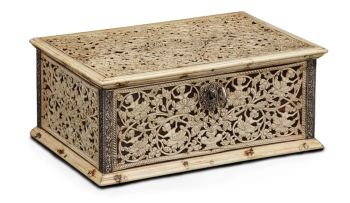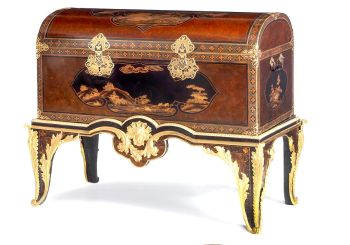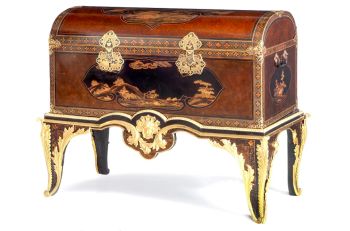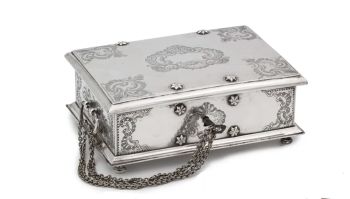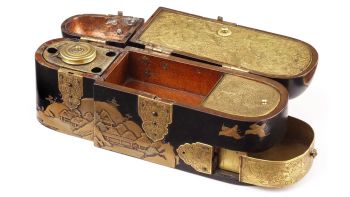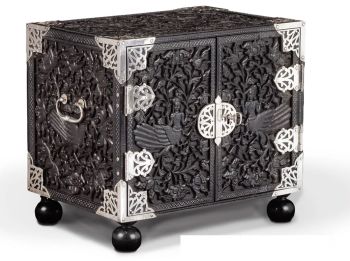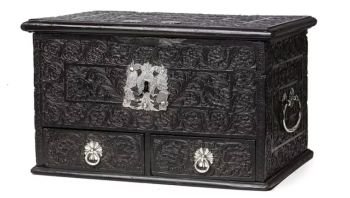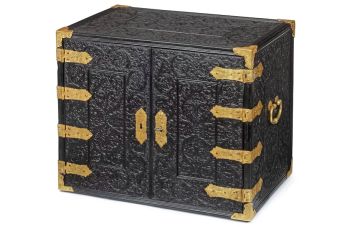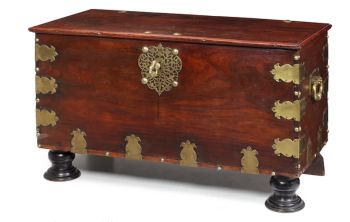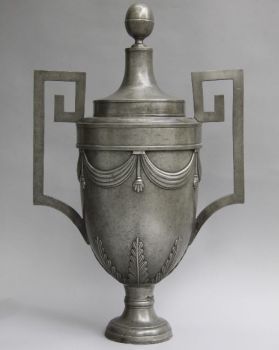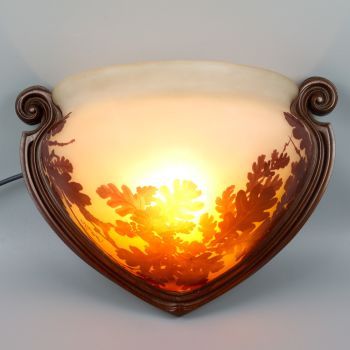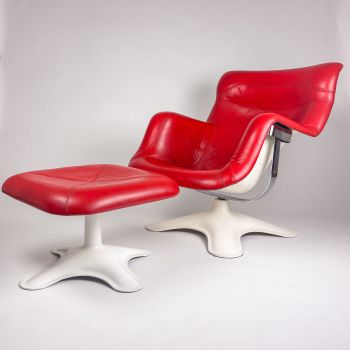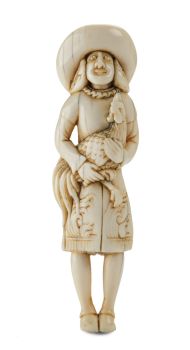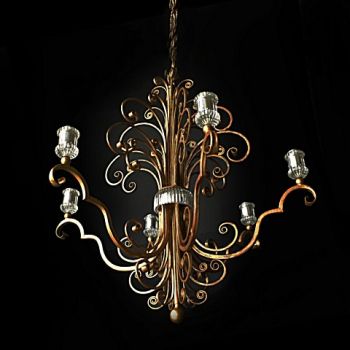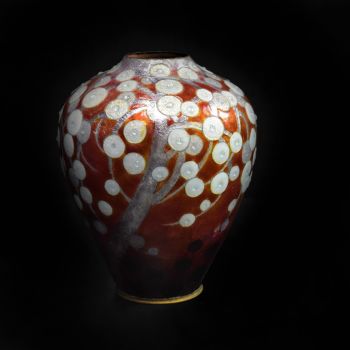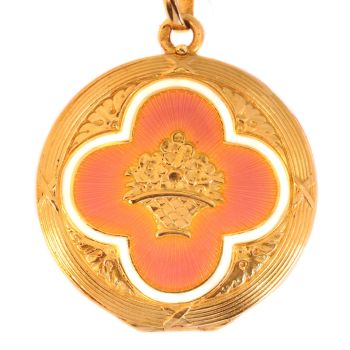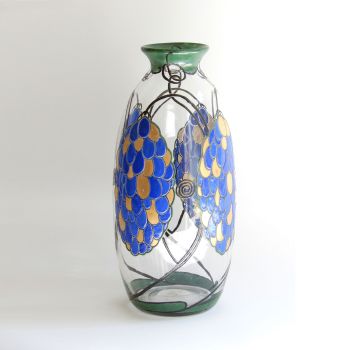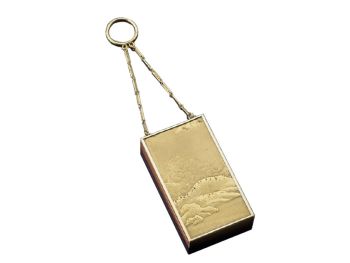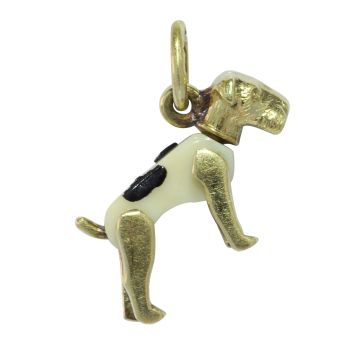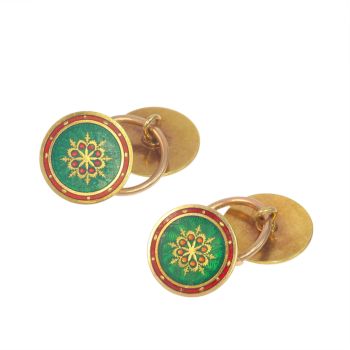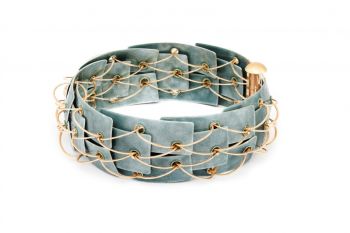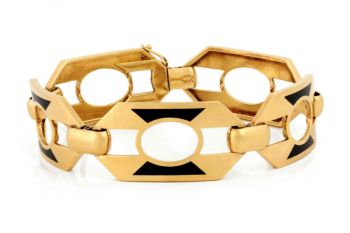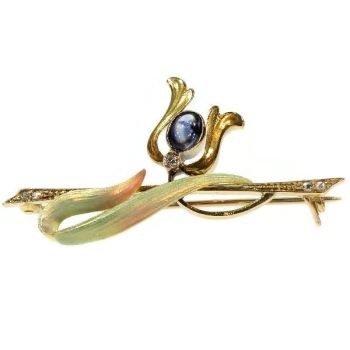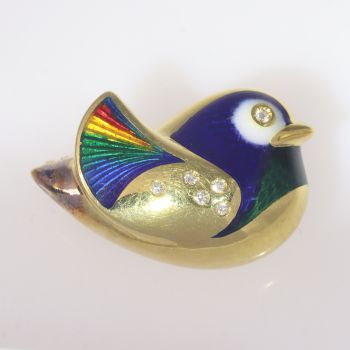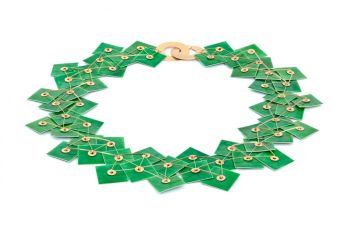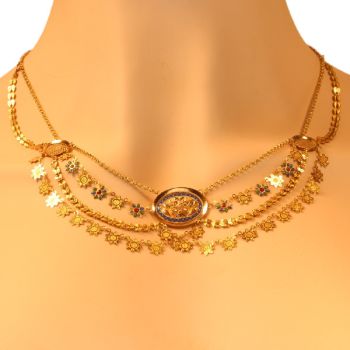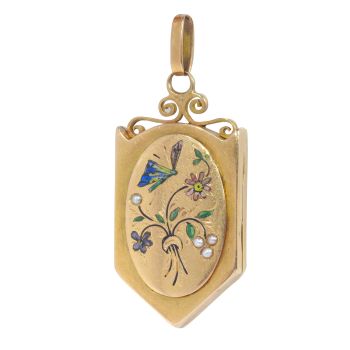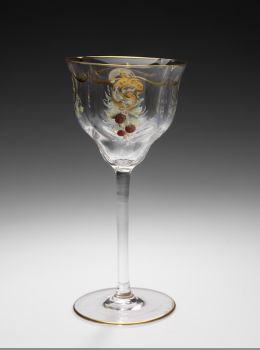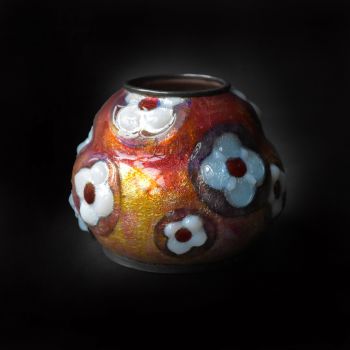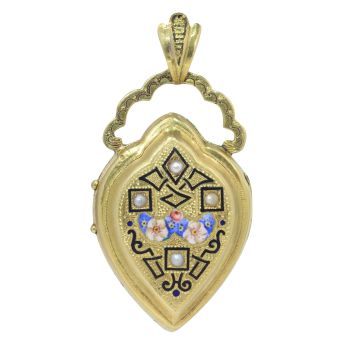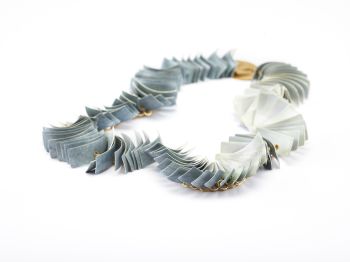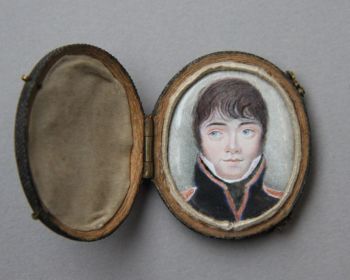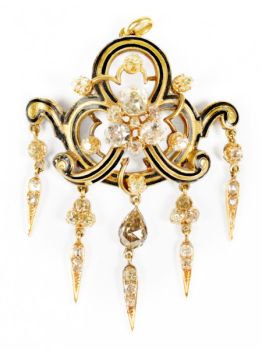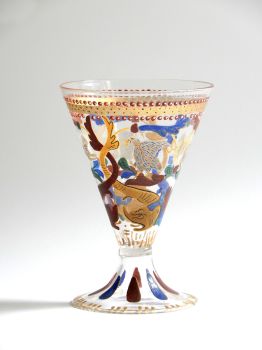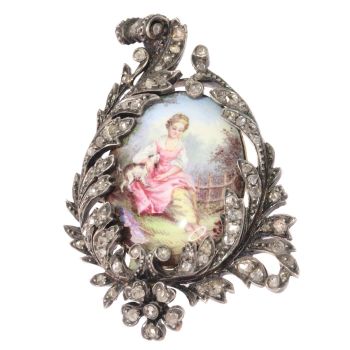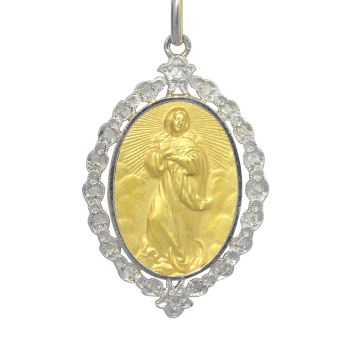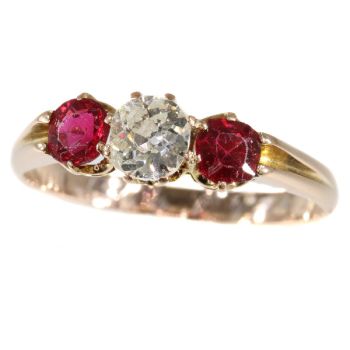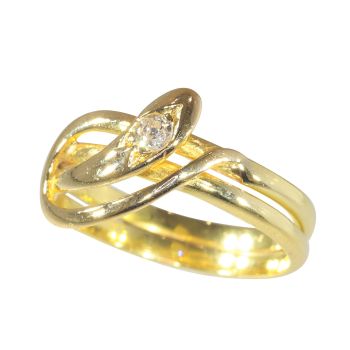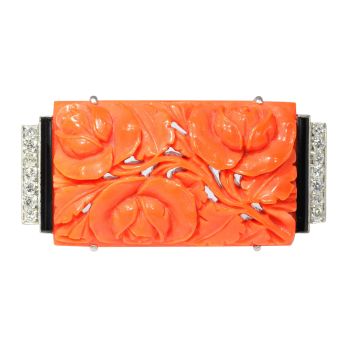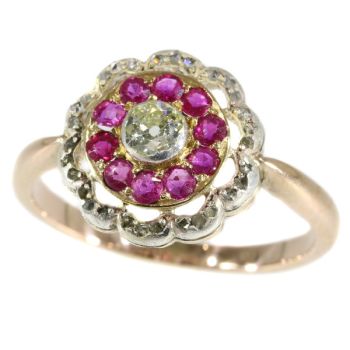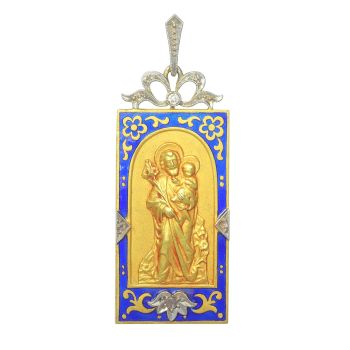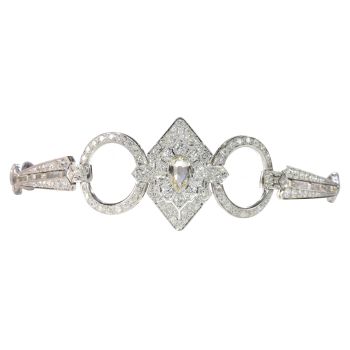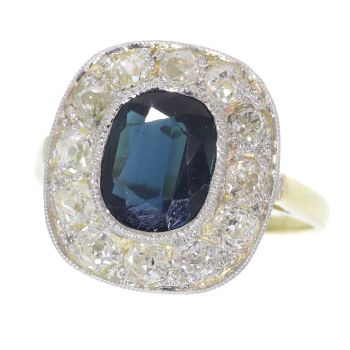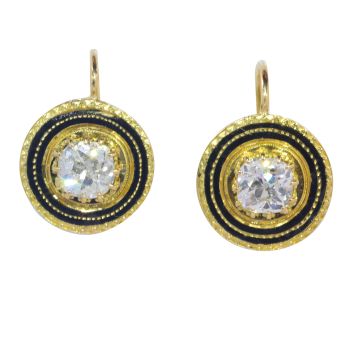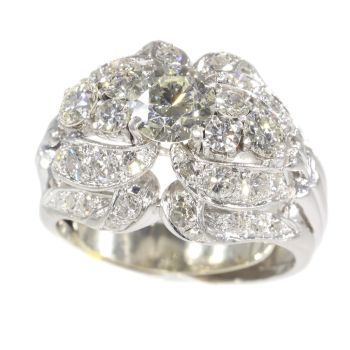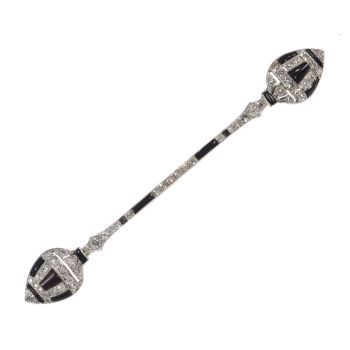Art Deco sigarettenkoker gelinkt aan Generaal MacArthur en Charles Lindbergh? 1928
Onbekende Kunstenaar
Email
€ 25.000
Adin Fine Antique Jewellery
- Over kunstwerk
The missing link between two different protagonists of the first half of the 20th century who dominated the headlines?
General MacArthur and Charles Lindbergh
The excitement that the business branch of antique and vintage jewellery brings about is after more than four decades still astounding to us. Even the thought "if only our collection could speak…" comes up once in a while,but we must remember that our jewellery pieces do communicate in their own way. Besides, it's one of the many fun bits of our job to unveil their past lives by chasing facts right there at the border of our imagination.
This mother-of-pearl-ish flourished gold and gilded silver with Japanese lacquer vanity or cigarette case uses hallmarks to inform us that it has been manufactured in France, made out of 18K gold and guilded silver,and that it has been imported in London in 1928.
However, it speaks volumes through its engraving on the inside: "To Violet from Major McArthur 3-12-1929".As everyone opening this box, we asked ourselves the question: "Who are Violet and Major McArthur?". And so our search began.
First and foremost, there's one famous Major MacArthur to be found: the 1st World War hero Douglas McArthur. Is this the man who gifted this case to Violet?Moving on to Violet herself: she appears to be much more anonymous. However, there's one link between a certain Violet Sharp and the 'Major MacArthur'-result from our investigation: the famous Charles Lindbergh.We've listed the important data concerning this case below, so you can connect those dots yourself. To us, this case could be a memorabilium of an interbellum fling -or even a forbidden love.In any way, an impossible one according to these facts below.
Would you say that each moment of the timeline is just coincidence or too much of a coincidence to be a coincidence anymore?
Timeline:- 1922: MacArthur's marriage with Louise Cromwell Brooks, New York.
- 1922-1930: MacArthur's mission to the Philippines on command of General John J. Pershing, due to a negative evaluation and -according to Mrs. McArthur- due to Pershing's interest in McArthur's wife.
- 1925: MacArthur's promotion to Major.
- 1927: Lindbergh successfully performs the first transatlantic solo flight (from New York to Paris).
- 1927: Lindbergh's receipt of the Medal of Honor for performing the first transatlantic solo flight.
- 1927: MacArthur's receipt of the Medal of Honor for his action during WWI,which was originally meant for Charles Lindbergh.
- 1927 - 1928: Import of the case in London.
- 28/07/1928 - 12/08/1928: MacArthur's presence at the Olympic Games in Amsterdam as a US representative.
- 18/06/1929: MacArthur's divorce from Louise Cromwell Brooks.
- 3/12/1929: MacArthur's gift of the case to Violet.
- pre 1930: Violet's married life in London until divorce.
- 22/06/1930: Lindbergh's first son is born and Violet's appointed as a household maid for the Lindbergh family in Morris County, New Jersey (ca. 100km from West Point, New York).
- 01/03/1932: Lindbergh's son's abduction. Violet is a strong suspect due to failing/refusing to name her alibi.
- 10/06/1932: Violet's suicide.
- 1930-1935: MacArthur's appointment to chief of staff to the United States Army. For this job, he was most likely stationed at West Point, New York.
- 1935: MacArthur's meeting with Jean Faircloth during his travel to the Philippines for a new mission.
- 1944: Lindbergh's and MacArthur's cooperation during WWII mission.
For more information, we refer to Agatha Christie's "Murder on the Orient Express" (filmed in 1974 and its remake in 2017), which was based on the abduction of Charles Lindbergh Jr.
And this is just what we like so much about our job. That the research on the history of a piece opens unexpected windows into the past.
Object description:
Antique jewelry object group: cigarette case
Condition: very good condition
- (more info on our condition scale)
Country of origin: France
Style: Art Deco - Art Deco is an eclectic artistic and design style which had its origins in Paris in the first decades of the 20th century. The style originated in the 1920s and continued to be employed until after World War II. The term "art deco" first sawwide use after an exhibition in 1966, referring to the 1925 Exposition Internationale des Arts Décoratifs et Industriels Modernes that was the culmination of high-end style modern in Paris. Led by the best designers in the decorative arts such asfashion, and interior design, Art Deco affected all areas of design throughout the 1920s and 1930s, including architecture and industrial design, as well as the visual arts such as painting, the graphic arts and film. At the time, this style was seen aselegant, glamorous, functional and modern.
- See also: Art Decoor more info on styles
Style specifics: Abstract motives and geometrical forms are quite typical for the Art Deco period. Art Deco moved away from the soft pastels and organic forms of its style predecessor, Art Nouveau, and embraced influences from many different styles and movements of the early 20th century, including Neoclassical, Constructivism, Cubism, Modernism, and Futurism. Its popularity peaked in Europe during the Roaring Twenties and continued strongly in the United States through the 1930s. Although many design movements havepolitical or philosophical roots or intentions, Art Deco was purely decorative.
Period: ca. 1928
- (events & facts of this era, poetry of this era, fashion of this era)
Source of inspiration: Chinese garden
Theme: Chinese/Japanese lacquer and mother of pearl inlay of a garden with a flower in which we recognize a violet
Material: Guilded silver and on the top an 18K yellow gold cartouche.
- (more info on precious metals)
Technique: Lacquer or Japanning - Just as china is a common name for porcelain, japanning is an old name to describe the European technique to imitate Asian lacquerware. As Asian lacquer work became popular in England, France, the Netherlands, and Spain in the17th century, the Europeans developed imitation techniques. The European technique, which is used on furniture and other objects, uses finishes that have a resin base similar to shellac. The technique, which became known as japanning, involves applyingseveral coats of varnish which are each heat-dried and polished. In the 18th century, japanning gained a large popular following. Although traditionally a pottery and wood coating, japanning was the popular (mostly black) coating of the acceleratingmetalware industry. By the twentieth century, the term was freely applied to coatings based on various varnishes and lacquers besides the traditional shellac. (from Wikipedia)
Extra information: Check pictures for several newspaper clipping from that era.
Hand engraving: "To Violet from Major McArthur 3 - 12 - 1929"
Hallmarks: The French control marks representing an eagle's head next to a wild boars head that was in use in France from about 1905. This hallmark was used for jewels that were made both in gold and in silver.
- (more info on hallmarks)
Dimensions: 8,57 cm (3,37 inch) x 7,50 cm (2,95 inch) x 9,70 cm (3,82 inch) - See picture with a ruler in cm and inches
Weight: 185,10 gram (119,02 dwt)
Adin Reference Nº: 19336-0154
Copyright photography: Adin, fine antique jewellery
bi-color jewelry, latest acquisitions,
antique jewelry, estate jewelry, vintage jewelry or modern jewelry
Jewelry with birthstones (or month stones) for:
January - February - March - April - May - June - July
August - September - October - November or December.
Additional information:
jewelry glossary - wall of fame - visit us in Antwerp - subscribe to our mailinglist.
What is antique jewelry? - What is estate jewelry? - What is vintage jewelry?
- Over kunstenaar
Het kan voorkomen dat een kunstenaar of maker onbekend is.
Voor sommige werken is het niet te bepalen door wie het gemaakt is of dat het is gemaakt door (een groep) ambachtslieden. Voorbeelden zijn beelden uit de Oudheid, meubels, spiegels of handtekeningen die vaak niet duidelijk of leesbaar zijn. Maar ook sommige werken zijn helemaal niet gesigneerd.
Ook kunt u de volgende beschrijving vinden:
•"Toegeschreven aan …." waarschijnlijk een werk van de kunstenaar maar niet zeker of gedeeltelijk
•“Atelier van ….” of werkplaats van” een werk uitgevoerd in het atelier of atelier van de kunstenaar, eventueel onder zijn toezicht
•“Cirkel van ….” een werk uit de periode van de kunstenaar die zijn invloed laat zien, nauw verbonden met de kunstenaar maar niet noodzakelijkerwijs zijn leerling
•“Stijl van ….” of “Volger van ….” een werk uitgevoerd in de stijl van de kunstenaar, maar niet noodzakelijk door een leerling; kan eigentijds of bijna eigentijds zijn
•“Wijze van ….” een werk in de stijl van de kunstenaar maar van latere datum
•"Na …." een kopie (van welke datum dan ook) van een werk van de kunstenaar
•“Getekend…”, “Gedateerd….” of “Ingeschreven” dan is het werk gesigneerd/ gedateerd/ ingeschreven door de kunstenaar. De toevoeging van een vraagteken duidt op een element van twijfel
•"Met handtekening ...", "Met datum ...", "Met opschrift..." of “Draagt signatuur/datum/opschrift” dan is de handtekening/datum/opschrift toegevoegd door iemand anders dan de kunstenaar
Bent u geïnteresseerd om dit kunstwerk te kopen?
Artwork details
Related artworks
- 1 - 4 / 12
Onbekende Kunstenaar
Japanese transition-style lacquer coffer 1640 - 1650
Prijs op aanvraagZebregs & Röell - Fine Art - Antiques
Onbekende Kunstenaar
A rare Japanese export lacquer medical instrument box1650 - 1700
Prijs op aanvraagZebregs & Röell - Fine Art - Antiques
Onbekende Kunstenaar
A Dutch colonial Indonesian betel box with gold mounts1750 - 1800
Prijs op aanvraagZebregs & Röell - Fine Art - Antiques
Onbekende Kunstenaar
EEN IVOREN NETSUKE VAN EEN NEDERLANDER MET EEN HAAN18th century
Prijs op aanvraagZebregs & Röell - Fine Art - Antiques
Børge Mogensen
Teak wood “dropleaf” desk – Søborg Møbler, Denmark circa 19551950 - 1960
Prijs op aanvraagVan Kerkhoff Art
1 - 4 / 24- 1 - 4 / 24
- 1 - 4 / 12

